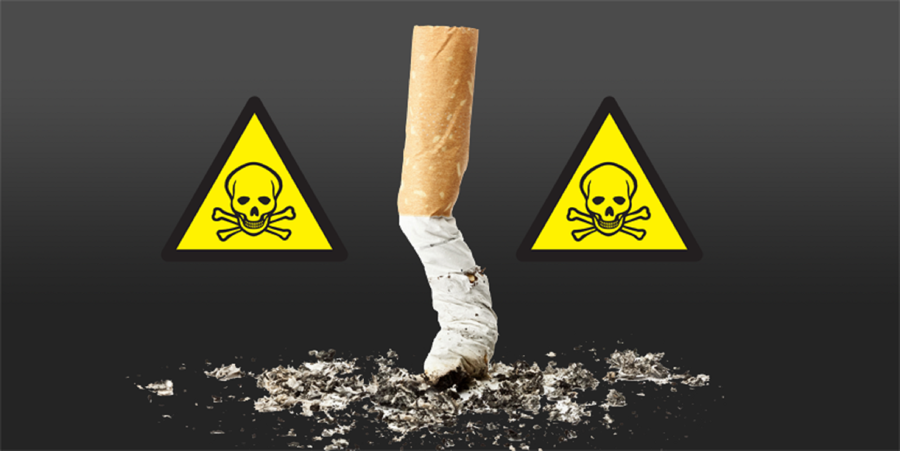The Solomon Islands Government (SIG) has been slow in implementing the World Health Organization (WHO) Framework Convention on Tobacco Control (FCTC) and the Tobacco Control Act.
This is despite the country becoming a party to the WHO FCTC in 2004 and enacting the Act in 2010.
WHO FCTC Article 5.3 obligates member countries to protect public health policies related to tobacco control from commercial and other vested interests of the tobacco industry.
This ensures that such policies remain free from industry influence.
According to Geoffrey Alacky, one of the authors of the Tobacco Industry Interference Index 2023 report, other countries have made significant progress in compliance compared to the Solomon Islands, which currently has three tobacco companies.
He emphasized that it is the government’s responsibility to implement WHO FCTC Article 5.3 and enforce the Tobacco Control Act.
However, Minister of Health and Medical Services Dr. Paul Popora Bosawai has stated that efforts are underway to address these issues. He noted that a Compliance Unit has been established within the Ministry to oversee enforcement.
The report indicates that sources from the Ministry of Health and Medical Services (MHMS) confirm that the slow implementation of WHO FCTC Article 5.3 and the Tobacco Control Act 2010 is primarily due to a lack of commitment and political will among MHMS executives.
Additionally, their failure to prioritize tobacco control programs as mandated by the Act has contributed to the delay.
With support from WHO, the South Pacific Secretariat (SPC), and the MHMS Non-Communicable Diseases (NCD) department, a Wellness NCD Alliance was established in June 2019.
Comprised of non-state actors, this alliance aims to assist the MHMS in advocating for NCD prevention, tobacco control, and health screenings.
The report also states that the MHMS, through the NCD department, is currently reviewing the role of the Tobacco Control Technical Advisory Committee (TCTAC) and is working to finalize new terms of reference and functionality.
A significant loophole in the current Act is the absence of a limit on the number of companies that can apply for and obtain manufacturing or import licenses, despite the country’s small population size and market volume.
The report further notes that although a few dedicated individuals within the MHMS and non-state actors are working to implement WHO FCTC and the Tobacco Control Act, most government officials and parliamentarians remain largely unaware of WHO FCTC and its provisions.
This was evident during tobacco control advocacy and awareness activities led by the MHMS through the TCTAC.
Since 2018, the TCTAC has conducted awareness sessions with the executive government caucus and cabinet members in the Office of the Prime Minister, with sessions held in 2018, 2019, and April 2023. Alongside the health promotion department, the TCTAC is responsible for raising awareness about both the Tobacco Control Act 2010 and WHO FCTC Article 5.3. Part 2, Section 4 of the Act explicitly bans tobacco advertising.
However, the ban does not extend to corporate social responsibility (CSR) initiatives, allowing the tobacco industry to continue engaging with communities through CSR and philanthropic activities.
The report suggests that a comprehensive review of the current Act, incorporating stricter provisions on industry interference—including CSR activities—would be a game-changer.
Expanding the ban on tobacco advertising, promotion, and sponsorship to cover all direct and indirect forms, including CSR activities, would strengthen the country’s tobacco control framework.
Currently, three main tobacco companies dominate the Solomon Islands market:
Solomon Islands Tobacco Company Ltd. (SITC) – a subsidiary of British American Tobacco (BAT)
Solomon Sun Cigarette Company – co-owned by a Chinese naturalized citizen and a former Member of Parliament
Oceanic Oasis – a Chinese-owned cigarette importing company
Together, these companies control 98% of the cigarette market in the country.
The report underscores that significant efforts are required across all sectors of the Solomon Islands Government (SIG), particularly within the MHMS, to enforce the Tobacco Control Act 2010 and WHO FCTC regulations.
In the 2023 Tobacco Industry Interference Index, the Solomon Islands scored 53 points—an improvement from the 63 points recorded in 2021.
A key driver of this progress was the XVII Pacific Games 2023, which prompted institutions nationwide to create a conducive environment for the event.
Despite this improvement, the report acknowledges that much more needs to be done to enhance compliance with Article 5.3.
While the tobacco industry continues to interfere in health policy, awareness is growing within the broader community about the harmful effects of tobacco.
The Solomon Islands, with a population of approximately 700,000, has a high smoking prevalence, particularly among youth.
More than 810 children (aged 10-14 years) and 67,620 adults (aged 15+) use tobacco daily.
The report highlights the urgent need for stronger regulatory measures and increased public awareness to curb the health risks associated with tobacco use.
By EDDIE OSIFELO
Solomon Star, Honiara









